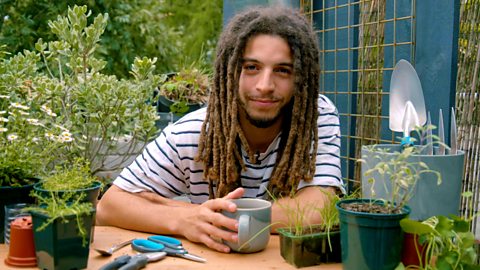"Iâm bored!"
"I donât know what to doâŠ"
"So BORED!"
For all our efforts at home learning and opportunities for endless screen time, there are lots of children for whom being at home is frustrating and dull.
It isnât helping family morale when parents are under more pressure than a children's entertainer to endlessly occupy the kids.
But should we even try to do so? Maybe boredom actually serves a purpose.
What is boredom?
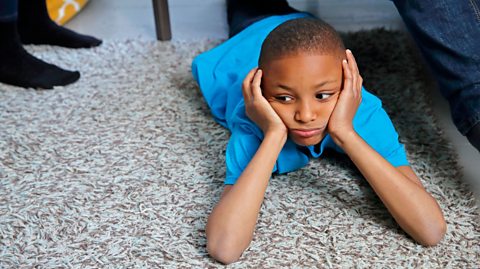
Boredom isnât an obvious emotion like anger, sadness or joy, but it is an emotional state and scientists suspect it serves an evolutionary purpose. Boredom is our way of pushing past complacency, it's a driver for exploring new places and things which has led humans to innovate and keep trying novel approaches because we generally love shiny new things.
We are subtle creatures and our boredom is a . It can lead to frustration and anger, or it could inspire that ânext step.â
Donât screens mean that nobody gets bored?
Bitesize spoke to Dr Sandi Mann who is a psychology lecturer at the University of Central Lancashire and author of The Science of Boredom: Why Boredom is Good.
âYouâd think that people brought up on the internet wouldnât know what boredom is anymore, but research shows that kids are more bored than ever and where the generation above have learnt to cope with lower levels of stimulation, they havenât.â
âThey have this very high level of stimulation, that lowers their boredom threshold, so they need more stimulation not to be bored and they are not able to un-bore themselves. They have to use the internet and scroll their boredom away where the generation above learned to use other means.â
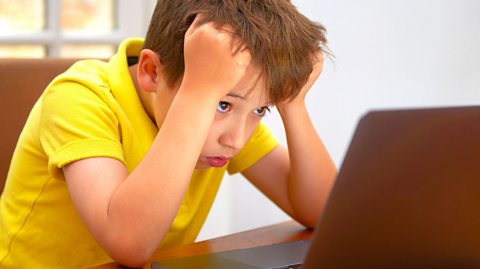
âBut weâve got a real opportunity here when kids arenât being rushed from school to activity and play dates, weâve got the potential for real downtime and that means time to be bored where they have to un-bore themselves.â
For academic Dr Teresa Belton, boredom is potentially the spark we need to get creative. She asked many creative people about their work and their childhood and the need for boredom as a âcreative state.â Talking to the ±«Óătv previously she said:
"When children have nothing to do now, they immediately switch on the TV, the computer, the phone or some kind of screen. The time they spend on these things has increased. But children need to have stand-and-stare time, time imagining and pursuing their own thinking processes or assimilating their experiences through play or just observing the world around them."
Dr Mann has these three tips for parents
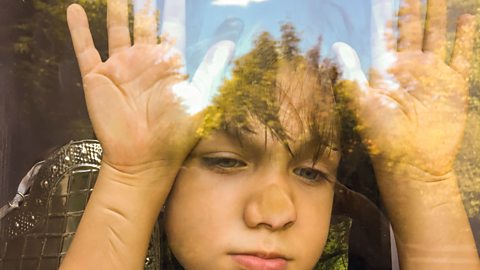
Let them get bored
âI think parents are told we have to be stimulating our children all of the time. Now we are in lockdown again it is all about âhome-schoolingâ and not letting them lose the advantage in education. I think that we are very much afraid that if our kids are bored, weâre failing as parents, but actually I think itâs the other way around and weâre failing as parents if we donât let them get bored.
Limit screen time and computers
âDonât just rely on devices where they use passive things to reduce their boredom. They need real boredom time where the only thing they have to entertain themselves is their own imagination and creativity. That is something we have lost.â
Give them resources
âDressing up stuff and things for craft - anything you can find lying around. They need to do it actively; they need to use their own imagination. This makes them more tolerant of boredom, it will help them to be able to concentrate more and to build their own creativity because I fear creativity will become stifled from them not being able to have that downtime.â

One parent's experience
Primary School teacher Monica Saunders has three daughters aged 15, 13 and five. She agrees with Dr Mannâs approach.
âIt has taken weeks to find a routine that works for everyone. Iâve let them find their own way to do it, and theyâve made their own different routines. I have encouraged them to use this time to find something that theyâd like to do and wouldnât normally have the time for. Social media is great for keeping in touch with friends, but they have started to get bored of it and begun to find other things to do. The good thing about this is it is making them more resourceful. Even going around their local areas, they would normally look at maps on their phones if they go the wrong way.â
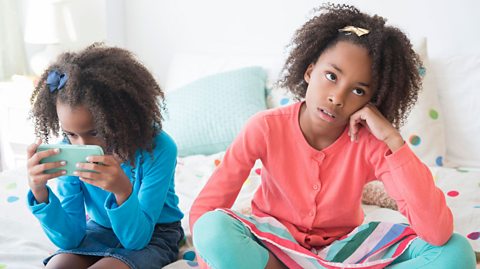
âBut because there is a lot less happening on their social media, a lot of which is around what is happening at school, they are starting to find other things â they did two quizzes at the weekend that the kids set up themselves and they were out in the garden for ages thinking up clues which they might not normally have the patience or time to do.â
So if youâve been inspired by these ideas for letting kids experience boredom, then perhaps you could include them in a lockdown routine, like yoga and learning times tables? It might give you the ammunition to say âBoredom is good for you â enjoy it while you can!â

More from ±«Óătv Bitesize Parents' ToolkitâŠ
Parents' Toolkit
Fun activities, real-life stories, wellbeing support and loads of helpful advice - we're here for you and your child.

Bitesize Support
There's lots of new experiences this term, weâve asked experts and those whoâve been through it to share their wisdom.

How to manage your childâs online world without clashing
Children and teens spend lots of time online for school and leisure, which can be a worry for parents. Here's some advice on managing your childâs screen time.
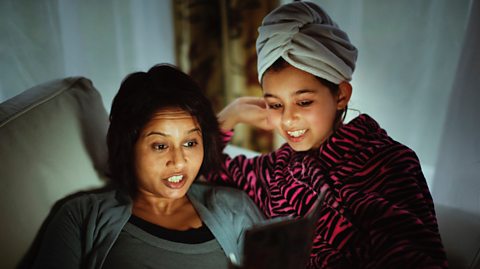
Seven skills a teenager can learn in one month
If your teen wants to shake up their free time, here are seven skills they can try.
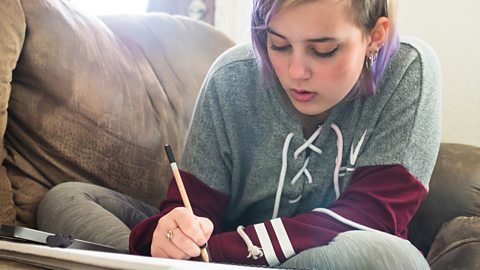
How to grow plants at home - Tips for your family
Gardener Tayshan Hayden-Smith has given us tips on nurturing and growing plants with your kids - whether you have a garden or not.
